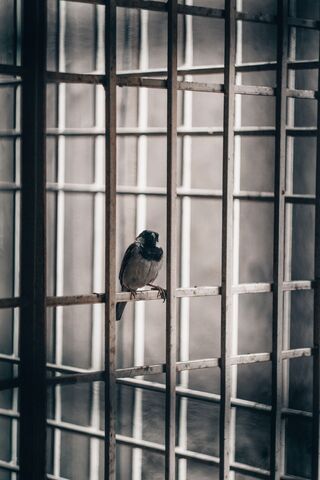Law and Crime
A Second Chance for Chinese Prodigal Sons
Rebuilding their lives is especially challenging.
Posted October 24, 2022 Reviewed by Gary Drevitch
Key points
- Released juvenile offenders in China often see no hope for their future, even among those with exemplary prison records.
- A solid social support system is needed to rebuild self-efficacy and trust.

By Haiye (Gerrad) Xu and Ye Zhang Pogue
In general, China is considered to have a low crime rate. Among countries, its crime rate ranks 108th in a 2022 report. Nevertheless, as the nation with the largest population on earth, the number of people behind bars is significant. In 2009, the Chinese national statistical bureau reported 163 million inmates in prison. But there were only 20,662 juvenile offenders in 2009, a surprisingly low number. Chinese society rarely discusses the lives of this group of young people. Is there a second chance for them?
Haiye Xu (my co-author on this post) has a middle-school friend who was arrested and imprisoned after stabbing another student in anger. After this incident, he became concerned about juvenile offenders' future. To help, Haiye interviewed the director of the juvenile correction center in his hometown. Collaborating with me, we examined the study reports to identify potential behavioral intervention areas.
In China, juvenile offenders are generally viewed hostilely. When Haiye shared an online post about potentially having an interview, a number of negative commenters accused him of sympathizing with criminals. The comments were dehumanizing.
When released juveniles return to society after serving their sentence, they face extreme challenges in finding jobs that can support them. The most intuitive explanations for these challenges are a lack of skill training that meets labor market demands, social stigma, and systemic discrimination against people with criminal records. There is another element, however, that is easily overlooked.
Released young people often see no hope for their future—even those with exemplary prison records. In the days leading up to their release, correction officers usually talked to the young people who will soon be free. The officers asked about their plans after discharge. Many of them replied that they had no plan whatsoever, and some even said that life outside prison might be worse. They did not believe society would provide them with a second chance; instead, they believed that they would be unable to support themselves.
It is true that hostile social forces can make one feel pessimistic. This fatalistic attitude, however, makes reintegration into society even more difficult. Before Haiye posted his findings on social media, the director of the correction center asked him to remove the paragraph about the hopeless attitude because he felt embarrassed about it and saw it as a failure he could not fix. Despite the fact that his facility is able to provide job training, it is not able to train young people to reestablish self-efficacy and trust in society.
We examine possible solutions. Usually, these young adults lack a solid social support system, which is necessary for rebuilding self-efficacy and trust. Additionally, they lack role models to follow. When a person successfully rebuilds their life, they do not mention the dark parts of their past; a criminal record carries so much shame. The chances of released juveniles being able to be connected with another person who successfully returns to society are almost nonexistent in China.
Even though the criminal justice system in the United States is flawed in many ways, there are social programs designed to help “prodigal sons” rebuild their emotional capacity. Many religious institutions focus their ministries on these young adults. In such programs, participants can connect with other "prodigal sons" who have rebuilt their lives. There are also numerous 12-step "Anonymous" groups to support people who have been involved in drug-related offenses, such as Narcotics Anonymous.
It will remain challenging for Chinese "prodigal sons" to rebuild their lives. The nation's social stigma makes it difficult to build an effective mentoring and support system. These young people are left to fend for themselves. It is a long and difficult road to advance the concept of a second chance.
Haiye Xu is a student at Xi'an Gaoxin No. 1 High School.


